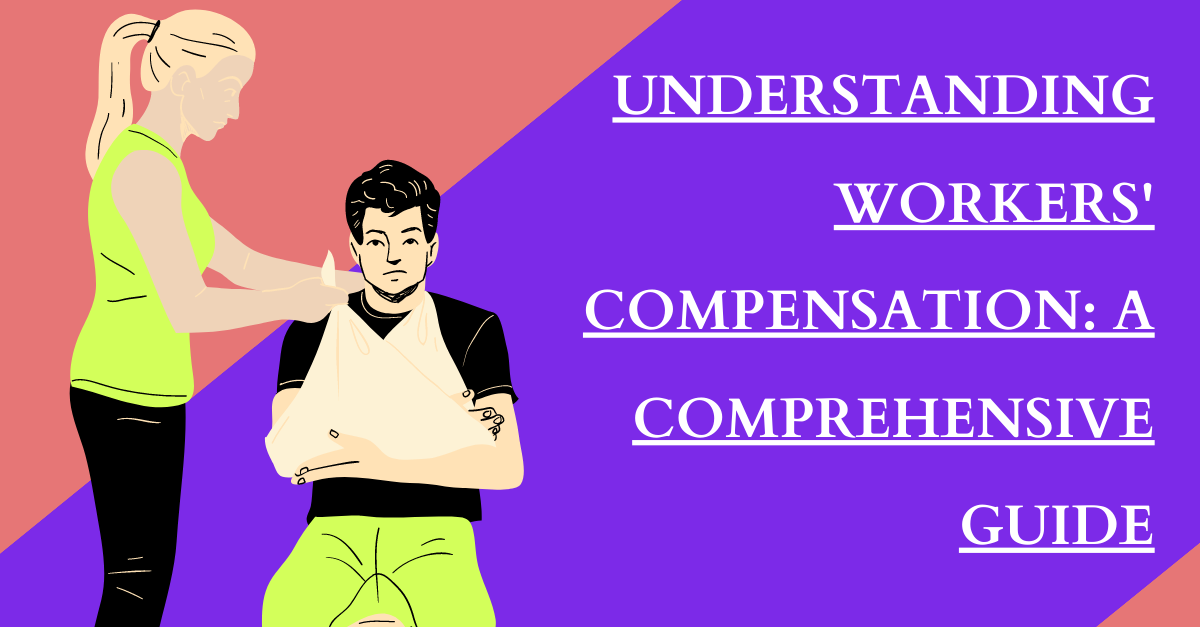Understanding Workers’ Compensation Insurance: A Comprehensive Guide
In the realm of business, the safety and well-being of employees are paramount. This is where workers’ compensation insurance comes into play. This comprehensive guide will delve into the intricacies of workers’ compensation insurance, shedding light on its importance, benefits, eligibility, claims process, and more.
What is Workers’ Compensation Insurance?
At its core, workers’ compensation insurance is a safety net that provides financial protection to employees who suffer work-related injuries or illnesses. It ensures that employees receive medical care and compensation for lost wages, while also safeguarding employers from potential lawsuits.
The Importance of Workers’ Compensation Insurance
Businesses of all sizes benefit from workers’ compensation insurance. For employees, it guarantees access to medical treatment and income replacement during recovery. Employers, on the other hand, are shielded from legal action that could arise from workplace injuries.
Who Needs Workers’ Compensation Insurance?
Most states mandate that businesses with employees must have workers’ compensation insurance. This applies regardless of the business’s size – whether it’s a small startup or a large corporation.
Benefits for Employees
Workers’ compensation offers numerous benefits to employees, such as medical treatment coverage, disability benefits, vocational rehabilitation, and compensation for permanent injuries.
Benefits for Employers
Employers gain peace of mind from workers’ compensation insurance as it reduces the risk of costly lawsuits. It also fosters a safer work environment, potentially lowering the number of workplace accidents.
Eligibility Criteria
Employees are generally eligible for workers’ compensation benefits if the injury or illness occurred during the course of employment. However, intentional self-harm, injuries resulting from drug or alcohol use, and injuries sustained while violating company policies may not be covered.
The Claims Process
Initiating a workers’ compensation claim involves notifying your employer of the injury, seeking medical treatment, and filing the necessary paperwork. Employers then submit the claim to their insurance provider, which assesses the case and decides on compensation.
Common Workplace Injuries Covered
Workers’ compensation insurance covers a wide range of workplace injuries, including slip and fall accidents, repetitive strain injuries, occupational illnesses, and even psychological stress caused by work-related factors.
Calculating Compensation
The compensation amount typically includes medical expenses and a portion of lost wages. The exact calculation varies, but it’s often a percentage of the employee’s average weekly wage.
Returning to Work
In cases where employees recover and can resume work, workers’ compensation may provide vocational rehabilitation to aid their reintegration into the workforce.
Employer Responsibilities
Employers must maintain a safe work environment, provide necessary training, and ensure that workplace hazards are minimized. These measures not only protect employees but also contribute to lower insurance premiums.
Premiums and Cost Factors
Insurance premiums are influenced by factors such as the nature of the business, the number of employees, industry risks, and the company’s safety record. Implementing safety measures can help lower premiums.
Challenges and Disputes
Sometimes, disputes may arise between employees and insurers regarding the compensation amount or the validity of a claim. Each state has an appeals process to address such challenges.
Penalties for Non-Compliance
Failure to carry workers’ compensation insurance can lead to severe penalties, including fines and even criminal charges in some cases. It’s crucial for businesses to adhere to state regulations.
Additional Coverages
While workers’ compensation covers most workplace injuries, some incidents, like injuries from vehicle accidents while on the job, might require additional coverage from commercial auto insurance.
Conclusion
In the intricate tapestry of employee welfare and business protection, workers’ compensation insurance stands as a pivotal thread. Its significance reverberates through industries, safeguarding the livelihoods of employees and the stability of employers. Understanding the nuances of workers’ compensation empowers businesses to create safer environments and ensures that employees receive the care and support they deserve.







